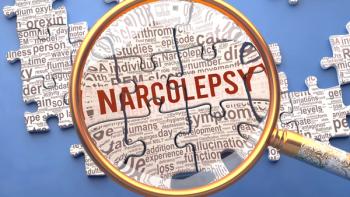
Sleep Disturbances a Major Issue in Gynecological Cancer, Review Finds
Treatments like cognitive behavioral therapy for insomnia and exercise therapy can help address sleep problems, both during and after treatment, the study found.
Patients undergoing treatment for gynecological cancer commonly experience sleep disturbances, but a new review article suggests there are a number of strategies available that can help improve patients’ sleep before, during and after treatment..
The reviews was
The major external culprit in sleep disturbance among women with gynecological cancer is pain, explained corresponding author Emma L. Barber, of the Northwestern University Feinberg School of Medicine, and colleagues.
“Previous studies have shown that pain causes the largest reduction in sleep duration because it is the most likely to persist throughout the night,” Barber and colleagues wrote. “Sleep and pain furthermore have a bidirectional relationship where sleep disruption can cause hyperalgesia, and pain can conversely cause sleep disruption.”
The problem of sleep disruption, however, can begin the moment a patient is diagnosed. The investigators said pretreatment sleep disturbances are often associated with depressive symptoms and anxiety. Patients with ovarian cancer tend to be more likely to have sleep disorders than patients with endometrial cancer, whose sleep disorder rates are similar to that of the general population, the investigators found.
“The most commonly cited risks of developing sleep disorders in the ovarian cancer population are abdominal discomfort and high distress at time of diagnosis,” they wrote.
During treatment, patients who undergo chemotherapy or radiation may have levels of physical fatigue that interfere with sleep quality, but they can also suffer from side effects like nausea and vomiting, which can affect sleep.
One study found 24% of patients with ovarian cancer who underwent palliative chemotherapy had sleep disturbances. Another study suggested that up to 80% of patients with gynecological cancer experienced sleep disruptions while hospitalized.
Even after treatment, many patients find themselves having difficulty sleeping. Barber and colleagues noted that sleep deprivation can slow patients’ recovery from surgery and lead to longer hospital stays.
However, the investigators said a number of tools are available to address the problem. Strategies like cognitive behavioral therapy for insomnia (CBT-I), sleep-schedule regulation, and limitation of caffeine can help patients prior to treatment, as can pharmacological products like zolpidem (Ambien), benzodiazepines, or melatonin.
During treatment, the investigators said CBT-I and exercise therapy have been shown to be the most effective interventions against sleep disturbances, but they added that management of side effects is also important.
While patients are hospitalized following treatment, the authors said literature supports the use of eye masks and earplugs to block light and noise. They said hospital staff should work to limit disruptions and interruptions at night. Pharmacological solutions are also useful, though the authors said benzodiazepines are typically avoided due to the risk of dependence.
Once a patient is discharged, the authors said many of the earlier strategies, such as CBT-I and exercise therapy, should be considered to help limit long-term sleep problems.
While their review centers on the causes and consequences of sleep disturbances, the authors said the inverse is also true.
“Conversely, good sleep in survivors is linked with a more positive affect and fewer episodes of anxiety or depression,” they wrote. “Because of the difference sleep quality poses to outcomes and patient quality of life, patient sleep at diagnosis, during treatment, and after treatment must be addressed.”
Barber and colleagues said physicians should regularly assess their patients for sleep disturbances, something that can be accomplished with tools such as the General Sleep Disturbance Scale. When problems are identified, they said, it is critical for physicians to intervene.
“Many of these interventions are easily implemented at a low cost, or no cost, and may benefit patients with gynecological cancers,” they said.
Newsletter
Get the latest industry news, event updates, and more from Managed healthcare Executive.























